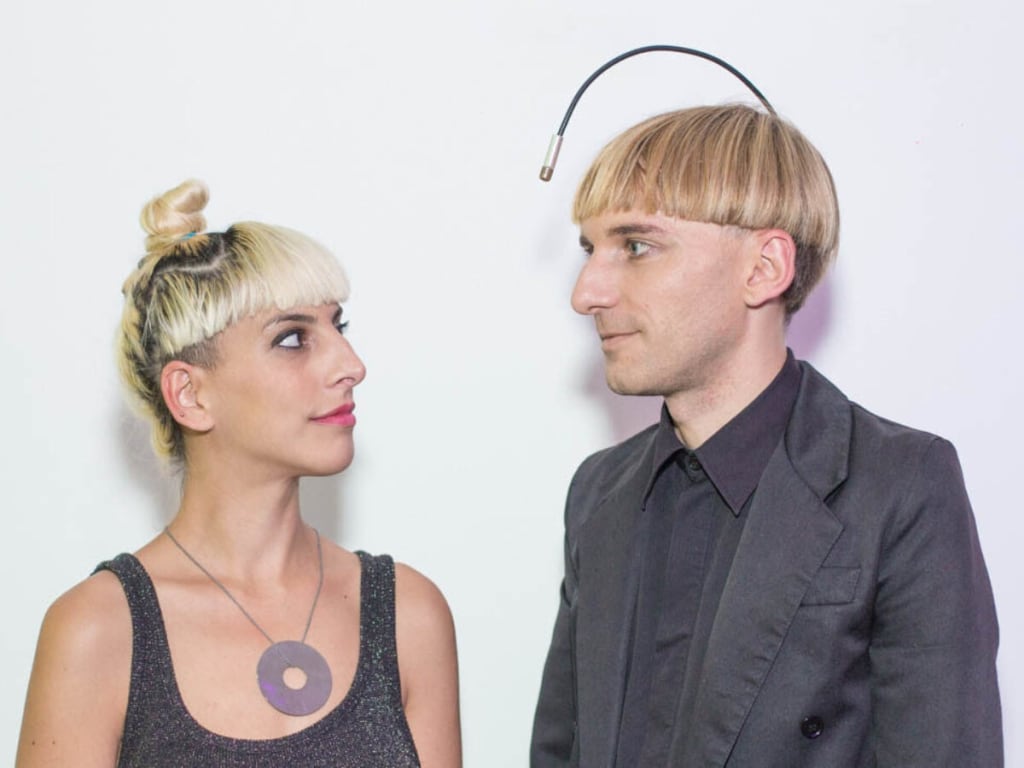The Rise of Hybrid Humans:
Exploring the Future of Human Evolution

In recent years, the concept of hybrid humans has captured the imaginations of scientists, futurists, and sci-fi enthusiasts alike. With advances in genetic engineering and transhumanist technologies, the line between human and machine is becoming increasingly blurred, raising questions about the future of human evolution.
Hybrid humans are beings that have been artificially enhanced or modified with technology, or genetically engineered to possess traits beyond those of natural humans. While the idea of hybrid humans may seem like something out of a science fiction novel, the reality is that we are already seeing the emergence of these beings in our world today.
One example of a hybrid human is Neil Harbisson, the world's first officially recognized cyborg. Born with a rare condition called achromatopsia, which causes him to see only in black and white, Harbisson had an antenna implanted into his skull that allows him to "hear" colors as sound frequencies. With this technology, he is able to experience the world in a completely unique way, blurring the line between human and machine.
But Harbisson is just the tip of the iceberg. With the rapid pace of technological advancement, we are likely to see more and more hybrid humans emerge in the coming years. From genetic modifications to brain-computer interfaces, the possibilities for enhancing human capabilities are nearly endless.
Of course, the rise of hybrid humans raises ethical and moral questions that must be addressed. Who decides which traits are desirable and which are not? Will the creation of hybrid humans lead to greater inequality and discrimination between those who can afford to enhance themselves and those who cannot? These are complex issues that will require careful consideration and debate.
Despite these challenges, there is no denying that the future of human evolution is likely to be shaped by hybrid humans. As we continue to push the boundaries of technology and genetics, the line between human and machine will continue to blur, ushering in a new era of transhumanism and human enhancement.
But what will this future look like? Some have predicted that we will see a division between "natural" humans and hybrid humans, with the latter becoming a new class of beings that are more advanced and capable than their unmodified counterparts. Others believe that we will see a merging of humans and machines, with the two becoming indistinguishable from one another.
Regardless of what the future holds, there is no doubt that the rise of hybrid humans is a fascinating and thought-provoking topic. As we continue to explore the possibilities of human enhancement, we must also consider the ethical implications of these advancements and work to ensure that they are used for the benefit of all people, rather than just a select few.
The concept of hybrid humans is a fascinating and rapidly evolving field of research that offers exciting possibilities for enhancing human capabilities and pushing the boundaries of what it means to be human. However, it also poses significant ethical and moral challenges that must be carefully considered and addressed.
One of the key ethical considerations of human enhancement is the potential for greater inequality and discrimination between those who can afford to enhance themselves and those who cannot. The creation of a new class of hybrid humans with advanced abilities could exacerbate existing social and economic disparities, leading to greater inequality and discrimination.
Another concern is the potential for unintended consequences. The long-term effects of genetic modifications and technological enhancements on human health and well-being are not yet fully understood, and there is a risk that unforeseen complications could arise.
Despite these challenges, the rise of hybrid humans is an exciting and thought-provoking topic that offers great potential for improving human lives. As we continue to explore this field of research, we must keep in mind the ethical implications of our actions and work to ensure that these advancements are used for the greater good of humanity.
This means that policymakers, scientists, and society as a whole must engage in open and transparent discussions about the potential risks and benefits of human enhancement. It also means that we must ensure that everyone has access to these technologies, regardless of their socioeconomic status or background.
Ultimately, the future of human evolution is likely to be shaped by hybrid humans. As we continue to push the boundaries of technology and genetics, the line between human and machine will continue to blur, ushering in a new era of transhumanism and human enhancement. However, we must also ensure that these advancements are used responsibly and for the benefit of all people, rather than just a select few. Only then can we truly realize the potential of hybrid humans and ensure a brighter future for all of humanity.
in mind the ethical considerations of human enhancement and work to ensure that these advancements are used for the greater good of humanity.
About the Creator
Muhammad Sarib Ali
Sarib is an experienced Content Writer with 5 years of experience in the CNet industry. He is a creative and analytical thinker with a passion for creating high-quality content and crafting compelling stories.






Comments
There are no comments for this story
Be the first to respond and start the conversation.